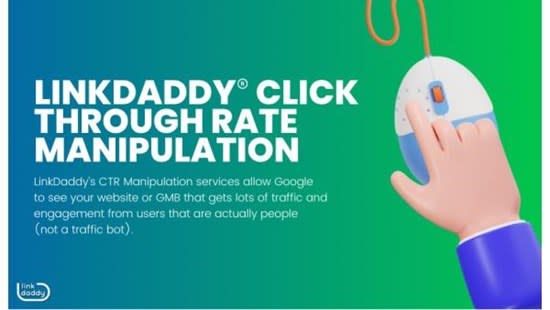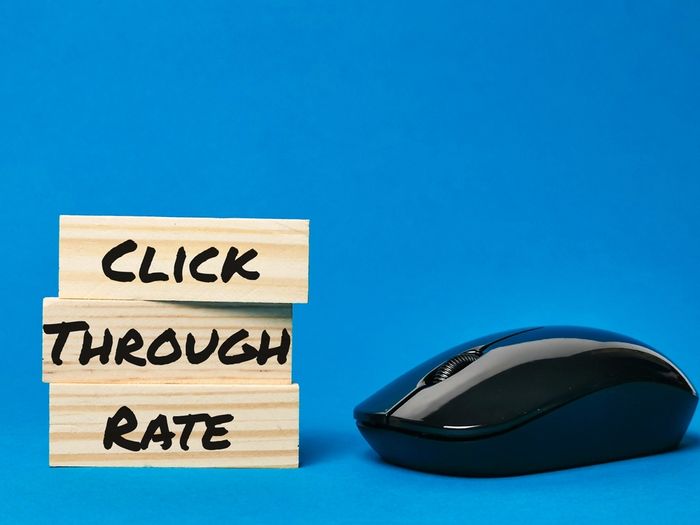CTR Manipulation Strategies: Proven Methods for Greater Engagement
CTR Manipulation Strategies: Proven Methods for Greater Engagement
Blog Article
Exploring the Connection In Between CTR Control Providers and User Habits
In the world of electronic advertising, the influence of click-through rate (CTR) control services on user behavior continues to be a complex and intriguing topic. By studying the detailed connection in between CTR adjustment services and customer behavior, interesting insights arise that might reshape our understanding of digital marketing approaches and their results on customers.
Impact of CTR Manipulation on Behavior
Analyzing the impact of Click-Through Rate (CTR) manipulation on user behavior reveals vital insights into the dynamics of online interaction. CTR control includes synthetically pumping up the number of clicks on a particular link or ad to deceive users and online search engine. This method can bring about a distorted assumption of a page's popularity or significance, ultimately impacting user behavior.

In addition, CTR manipulation can alter the data used by formulas to individualize user experiences. This can lead to customers being served material that does not line up with their choices or interests, eventually bring about a decline in user fulfillment and involvement. Understanding the effect of CTR adjustment on customer behavior is vital for keeping openness and rely on on the internet communications.
Customer Involvement With Manipulated CTR
Individual interaction with adjusted CTR data frequently causes skewed understandings of on-line material popularity and importance. When individuals connect with material based upon artificially inflated Click-Through Fees (CTR), they might believe that specific information, products, or services are much more prominent or reliable than they in fact are. This can cause customers choosing based upon deceptive information, causing possibly negative results.
Interaction metrics like sort, shares, comments, and time spent on a webpage are frequently influenced by CTR adjustment. Customers may be much more inclined to engage with content that appears to have greater interaction prices, even more bolstering the cycle of skewed perceptions. Consequently, content makers and marketers might prioritize generating web content that creates high CTR instead of focusing on developing really important and relevant product.

Mental Effects of CTR Manipulation

Moreover, the psychological results of Clicking Here CTR adjustment can additionally materialize in transformed decision-making procedures. Individuals may be more inclined to click on material entirely based on its viewed popularity, rather than its real value or importance to their demands. This behavioral change can result in a shallow involvement with on the internet content, where customers may overlook premium but much less popular offerings in support of those with synthetically boosted CTRs.
Fundamentally, the mental implications of CTR control highlight the relevance of preserving openness and authenticity in on-line interactions to cultivate authentic customer interaction and count on.
Honest Factors To Consider in CTR Control
CTR manipulation increases worries regarding tricking individuals, misshaping data analytics, and endangering the trustworthiness of on-line web content. By synthetically pumping up CTR, users may be misguided right into clicking on links or ads they would certainly not have selected otherwise, leading official website to a disingenuous online experience.
An additional ethical facet to ponder is the fairness of controling CTR to obtain an unreasonable advantage over competitors. Taking part in such techniques not just breaks principles of justice however likewise undermines the trust that customers put in on-line systems. It is necessary for services and digital marketing professionals to support ethical criteria in their methods to ensure openness, reputation, and long-lasting sustainability in the online setting.
Ramifications for Digital Marketing
With the raising reliance on electronic platforms for advertising and marketing functions, the technique of controling click-through prices (CTR) presents significant effects for the efficiency and honesty of digital advertising and marketing techniques. CTR adjustment can result in manipulated data analytics, deceiving marketing experts into thinking that their campaigns are doing much better than they in fact are. This can lead to misallocation of sources, with business buying underperforming techniques based on falsified CTRs. When individuals realize that CTRs have been adjusted, it can erode trust fund in the brand, leading to lasting negative effects for consumer commitment and brand online reputation.
Additionally, the use of CTR manipulation services can create an unfair affordable landscape, where firms that take part in such techniques get a fabricated benefit over those that comply with honest advertising standards. This can stifle development and creativity in digital advertising and marketing, as success becomes even more regarding adjustment methods than providing genuine value to consumers. Ultimately, the effects of CTR control for digital marketing expand beyond short-term gains, influencing the general sustainability and integrity of advertising efforts in the electronic realm.
Conclusion
In verdict, the connection between CTR adjustment services and customer habits is complex and complex. The effect of CTR manipulation on actions, individual engagement with adjusted CTR, mental impacts, moral factors to consider, and ramifications for electronic advertising all play a role fit this relationship. Recognizing these dynamics is important for marketers and scientists alike in order to navigate the moral effects and make the most of the effectiveness of their electronic advertising strategies.
Report this page